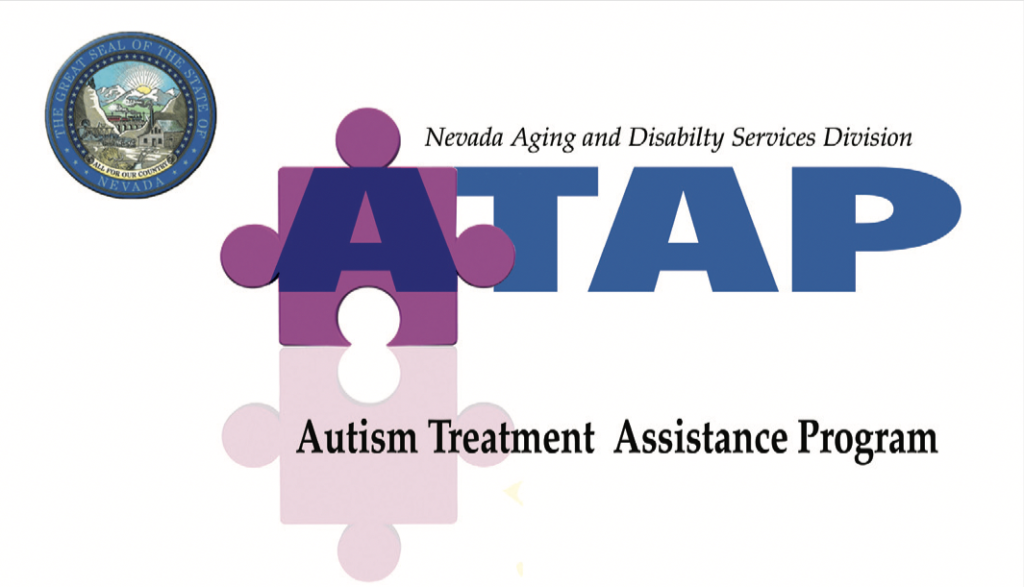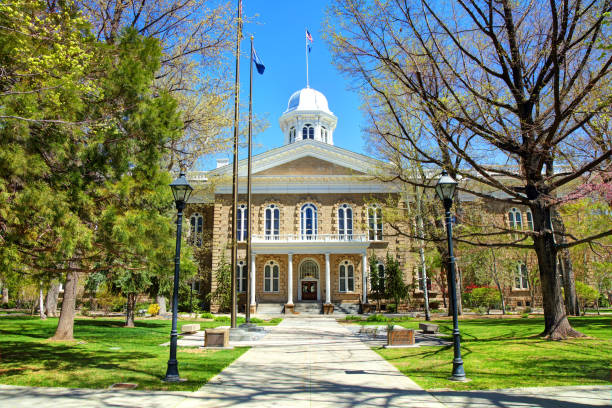


Children’s Advocacy Alliance, The Autism Treatment Assistance Program (ATAP), and Grant a Gift Autism Foundation Ackerman Center have been doing purposeful, amazing advocacy in the state of Nevada. In order to help celebrate the June successes of AB137 and AB422, FASD United conducted an interview with Brian Hager, the President of the Grant a Gift Autism Foundation – Ackerman Center..

The Grant a Gift Autism Foundation – Ackerman Center acts as Nevada’s largest non-profit care provider for those with developmental disabilities, with a specific focus on autism. Hager explains, “It is our mission to provide comprehensive clinical services, resources, education, research, and advocacy for individuals and families living with autism and other neurodevelopmental conditions.”
Similar to other states, like Hawai’i and North Dakota, Hager describes the necessity of teamwork and collaboration: “In the world of developmental disabilities and legislative efforts, it takes a team to make a change.” And change the organizations have made! “These three organizations care deeply about the community and the population it serves.” Legislative victories like these require deep, important amounts of care, and plenty of work. Alas, in order to get people the resources they need, these groups came together to advocate heavily in NV: “Collaboration is essential to help serve the community, especially when resources are lacking.”
Developmental disability legislation is a commendable feat, and for families with no concept of what assets may be available to them, they are a true blessing. “Oftentimes families are left with no, or limited resources, and combined we have wrapped our arms around this population to help give a voice and work to provide better outcomes.” So, what exactly is the legislation Brian Hager is discussing?

First, there is AB137, which adjusts the terminology of FAS to FASD in Nevada, which Hager declares “is a giant leap forward.” In addition to promoting more progressive language, the statute “is the first step in helping the FASD community access more state support services and recognizing that this is a spectrum disorder that is lifelong.” Services and monetary assistance in Nevada can now be more readily accessed by individuals who may have been denied them prior to its adjustment: “By changing key language in the statute it opens more avenues for families to receive funding for necessary care.”
Second, AB422, which establishes a pilot program with The Aging and Disability Services Division of NV’s Department of Health and Human Services. This program would serve children diagnosed with an FASD under certain circumstances because, “currently in Nevada there is no state agency that wraps its arms around the FASD community, leaving families to search for limited resources on their own.” Ideally in every state, a program like this would exist as it “allows a state agency to get a better understanding of the number of individuals impacted, assign dedicated case workers, work to train new providers, and explore new resources for this community.” As we understand nationally for FASD awareness, these are crucial goals!

While these victories are a triumph for Nevada and the organizations that have supported them, it was not a walk in the park. “The legislation process, specifically for FASD, is extremely extensive. The most difficult part of this journey was getting testimonials from local community members.” Hager gratefully mentions an FASD United affiliate, Nevada Families for FASD Awareness, that aided in the process of connecting families to the involved organizations. However, it was difficult to promote consistent familial engagement, “especially during a session, where meeting dates were postponed or announced with very little notice.” Despite this, the collective team pulled through, with Hager claiming that, “the most rewarding part of this process was educating legislators about the prevalence and the need for the FASD community.” As has been alike in other states, “most had very little knowledge about the number of individuals impacted and were shocked to learn about the lack of resources for them.”
Even after obtaining this legislation, Hager says that, “the team is most excited to continue this work. It is truly a passion project for the providers at the Grant a Gift Autism Foundation – Ackerman Center.” The signed bills are just the beginning for this group of dedicated individuals: “We continue to build up our clinics and apply for additional funding as it becomes available. It is our hope to continue our work and build research projects to better understand and serve the FASD community.” Hager states that the best support comes from sharing funding opportunities, spreading the word about the involved organizations, and expanding connections in the developmental disabilities scope as to “collaborate and share best practices, new interventions and updated research.” This team may be small, but they are powerful, as well as an inspiration to the FASD community.

Nevada residents! The Grant a Gift Autism Foundation – Ackerman Center are currently looking for additional staffing in a range of positions to help expand care and access for those with FASDs. Looking to get involved? Send them an email or give them a call.
Want to join an event in the area?
- The Las Vegas AAA Baseball Autism Fundraiser occurs this August.
- The Grant a Gift Gala is an annual charity event.
